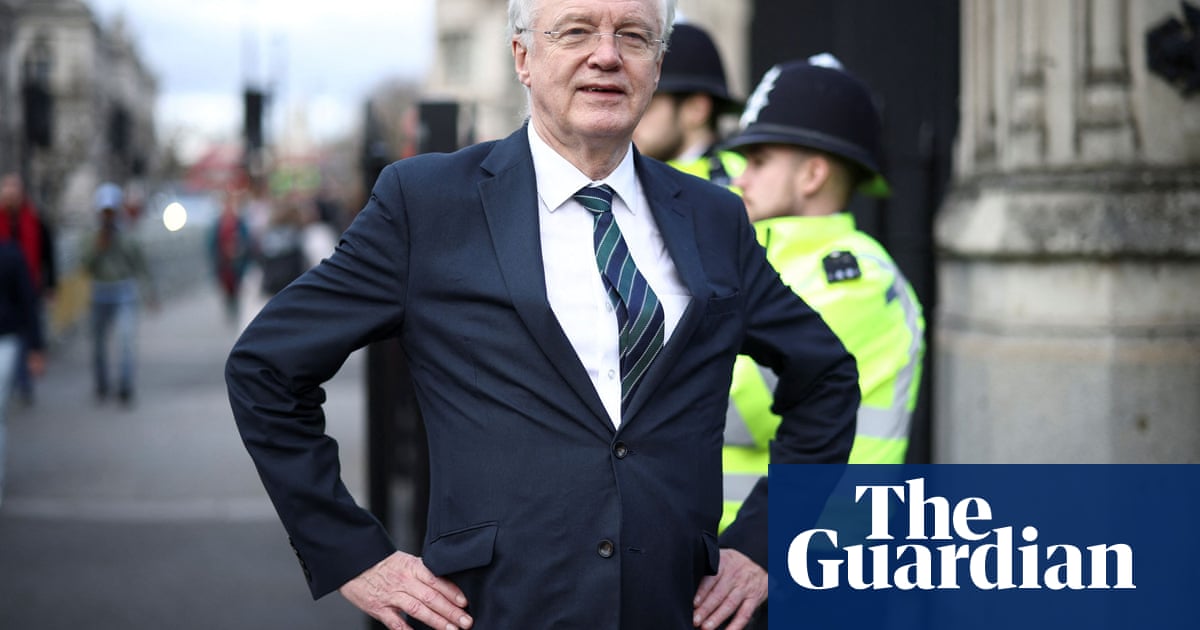
Holyrood is suffering from a “deficit of power” and needs reform to let it better investigate claims facing the Scottish government, a Tory MP has said.
David Davis, the former Brexit secretary, claimed MSPs’ inquiry into the handling of complaints against former first minister Alex Salmond by the administration led by his successor, Nicola Sturgeon, had revealed the “limits” of what the Scottish parliament could unearth.
He called for the UK government to amend existing legislation to ensure proper separation of powers, strengthen the impartiality of the civil service and “correct the fundamental power imbalance between the executive and the legislature”.
Davis told MPs: “I have it on good authority that there exists from 6 February 2018 an exchange of messages between civil servants … suggesting that the first minister’s chief of staff is interfering in the complaints process against Alex Salmond.
“[If] true, this suggests that the chief of staff had knowledge of the Salmond case in February, not in April, as she has claimed.”
A spokesman for the first minister said that was untrue. “The comment read out by Mr Davis in relation to the chief of staff does not relate to Ms A or Ms B [the complainants against Salmond] and, at that time, she was not aware that there was any connection to the former first minister.”
“Holyrood has great difficulties exposing what went on, the inquiry has come up against endless impediments in its efforts to fulfil its remits,” Davis said of the investigation into Sturgeon’s government.
He said the problems could be “traced back” to the original legislation passed by Westminster to set up a devolved administration in Scotland, by MPs who “decided to devolve power to the Scottish parliament but failed to do it properly”.
It “failed to guarantee separation of powers” in Scotland, Davis continued, meaning the Lord Advocate, the Scottish government’s most senior law officer, “both leads the prosecution service and serves in the Scottish cabinet” – leaving them “compromised” and their independence “undermined”.
Davis said politicians in Edinburgh were not given the same “powers and privileges” as those in Westminster, meaning “evidence relevant to the Holyrood inquiry can be freely discussed” in the UK parliament but not in the Scottish one.
He alleged there was a “concerted effort by senior members of the SNP to encourage complaints” against Salmond, and accused senior figures in the governing party of “improper” behaviour.
Salmond was cleared of all charges of sexual assault by a jury in March 2020.
Speaking in Westminster on Tuesday, Davis accused the Scottish government of “playing fast and loose with the facts”.
Responding, a Scotland Office minister, Iain Stewart, said any formal separation of the responsibilities of the Lord Advocate “would require legislation in Westminster”.
“I would imagine it is quite a complex debate to unpick … but that does not mean it should not be considered,” he said.
Stewart added that there are “a number of safeguards in place to make sure civil servants are able to raise concerns if they feel they are being required to act” in a way that breaches the code that governs their behaviour, but Davis had “raised some serious questions” and they would be “widely debated in the weeks and months ahead”.
Sturgeon’s spokesperson disputed Davis’s additional allegations that text messages between SNP officials showed concerted attempts to subvert the police investigation by pushing people to complain.
“As with Mr Salmond’s previous claims and cherrypicking of messages, the reality is very different to the picture being presented,” the spokesperson said.
“Every message involving SNP staff has been seen by the committee previously. Their views have been widely reported as dismissive of them.”












